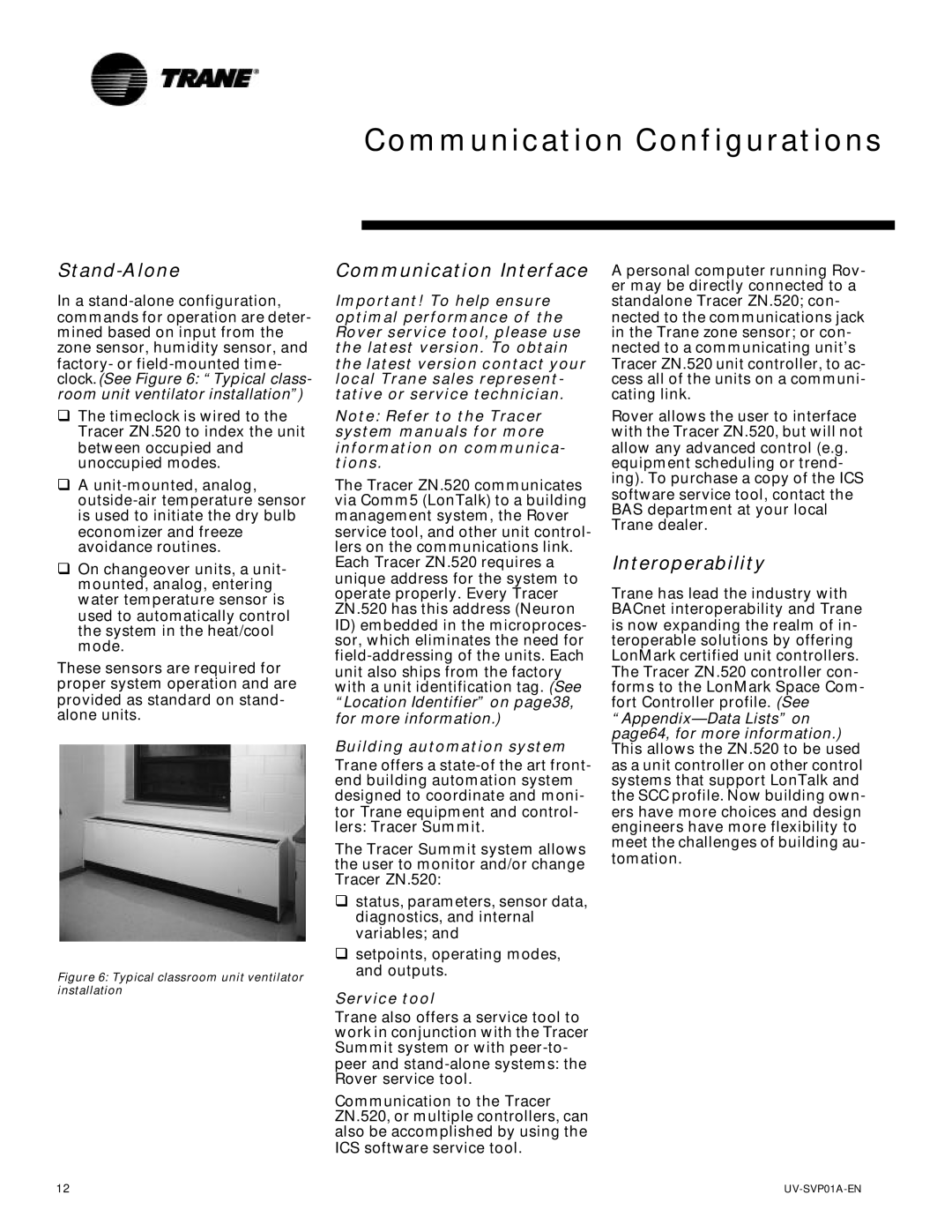
Communication Configurations
Stand-Alone
In a
factory- or
qThe timeclock is wired to the Tracer ZN.520 to index the unit between occupied and unoccupied modes.
qA
qOn changeover units, a unit- mounted, analog, entering water temperature sensor is used to automatically control the system in the heat/cool mode.
These sensors are required for proper system operation and are provided as standard on stand- alone units.
Figure 6: Typical classroom unit ventilator installation
Communication Interface
Important! To help ensure optimal performance of the Rover service tool, please use the latest version. To obtain the latest version contact your local Trane sales represent- tative or service technician.
Note: Refer to the Tracer system manuals for more information on communica- tions.
The Tracer ZN.520 communicates via Comm5 (LonTalk) to a building management system, the Rover service tool, and other unit control- lers on the communications link. Each Tracer ZN.520 requires a unique address for the system to operate properly. Every Tracer ZN.520 has this address (Neuron ID) embedded in the microproces- sor, which eliminates the need for
for more information.)
Building automation system
Trane offers a
The Tracer Summit system allows the user to monitor and/or change Tracer ZN.520:
qstatus, parameters, sensor data, diagnostics, and internal variables; and
qsetpoints, operating modes, and outputs.
Service tool
Trane also offers a service tool to work in conjunction with the Tracer Summit system or with
Communication to the Tracer ZN.520, or multiple controllers, can also be accomplished by using the ICS software service tool.
Apersonal computer running Rov- er may be directly connected to a standalone Tracer ZN.520; con- nected to the communications jack in the Trane zone sensor; or con- nected to a communicating unit’s Tracer ZN.520 unit controller, to ac- cess all of the units on a communi- cating link.
Rover allows the user to interface with the Tracer ZN.520, but will not allow any advanced control (e.g. equipment scheduling or trend- ing). To purchase a copy of the ICS software service tool, contact the BAS department at your local Trane dealer.
Interoperability
Trane has lead the industry with BACnet interoperability and Trane is now expanding the realm of in- teroperable solutions by offering LonMark certified unit controllers. The Tracer ZN.520 controller con- forms to the LonMark Space Com- fort Controller profile. (See
as a unit controller on other control systems that support LonTalk and the SCC profile. Now building own- ers have more choices and design engineers have more flexibility to meet the challenges of building au- tomation.
12 |
